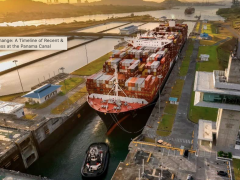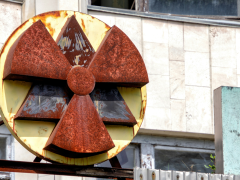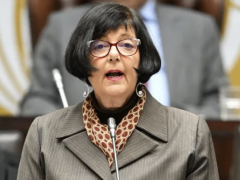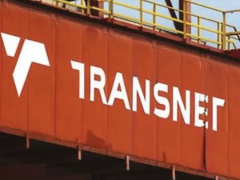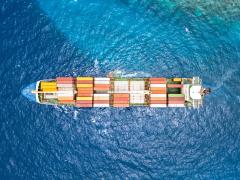Appointed liquidator in the SA Independent Liner Services (Sails) case, Sanek Trust Recovery Services, has moved into action to try to track down North Europe-South Africa- West Africa-bound cargo, in order to assist recipients. This after the provisional order by the Cape High Court – expected to become final within a matter of weeks providing no creditor objections are lodged. A complicated task, admits Sanek’s Darusha Moodliar, estimating around 500 containers are involved for each of four Sails/Lonrho charter vessels involved in the winding up process. Sails founder, Ian Wicks, has a different take, estimating about 300 units, made up of either teus or feus overall. “At this stage,” says Moodliar, “there is cargo all over the place and we are trying to assist owners as much as possible to get theirs.” She says one of the vessels, Taga Bay, “dumped” her cargo in Las Palmas, part of Sanek’s current focus which includes terminating all charter and container lease agreements. This has been done and vessel owners have, by all accounts, taken their vessels back, a year or so before charter agreements were due to expire. Another Sails vessel, Orinoco River, discharged her cargo in the port of Cape Town and sailed after release by the Sheriff of Cape Town over an arrest against the vessel’s bunkers, creditors in this matter being Bottom Line Solutions and Grindrod Container Depots. The Sails vessel, El Lobo, outside Cape Town at one stage, later steamed onto Durban – the manifest-listed destination for much of her cargo – to off-load before sailing. Another Sails vessel, Vaal, was off Felixstowe, UK, when alerted to the unfolding South African scenario, therefore setting sail for Rotterdam where she offloaded around 600teus destined for South and West Africa. These were subsequently reclaimed by shippers. Sanek has informed container owners that all Sails leases have been terminated, while cargo owners have been advised about freight charges, given that clause 12 (1) of the Bill of Lading (BOL) utilised by Sails states: “Freight shall be deemed fully earned upon receipt of Goods by the Carrier and shall be paid and non-returnable in any event.” This, explains Moodliar, means all freight owing to Sails under the BOL became due to the carrier on receipt of cargo – that is, prior to the winding-up and before termination of the agreement. All of which indicates that BOL holders are required to pay Sails freight charges in order to collect their goods. Wicks, in conversation with FTW at week’s end, is concerned the October salaries of the 12 or so Sails employees now without jobs have not been paid. “This (liquidation) is an absolute disaster. If you are going to wind a company up, you do it with dignity.” A rumour that Hull-Blythe, the Isle of Man-headquartered company that represented Sails in Durban and Johannesburg, was shutting up shop in South Africa was denied “absolutely” by regional director, Lee Walker. He told FTW, on the eve of leaving on a business trip for Ghana, that “plans are in the pipeline”, which he was not at liberty to discuss for now.



